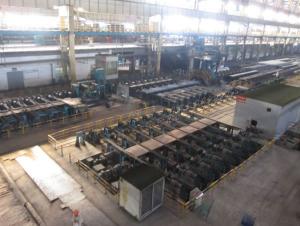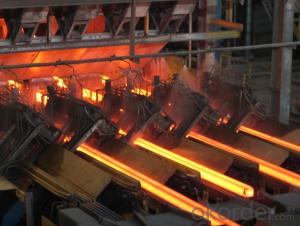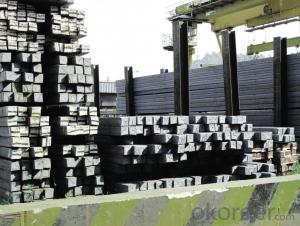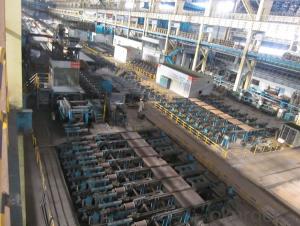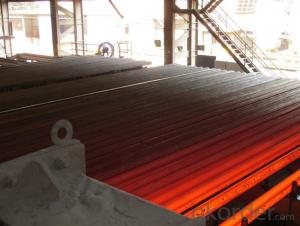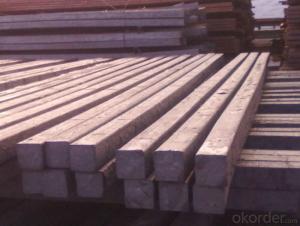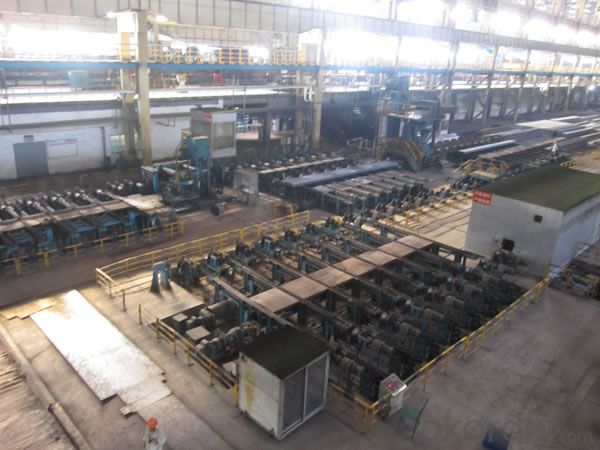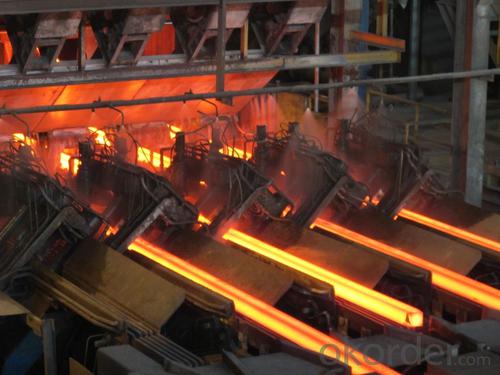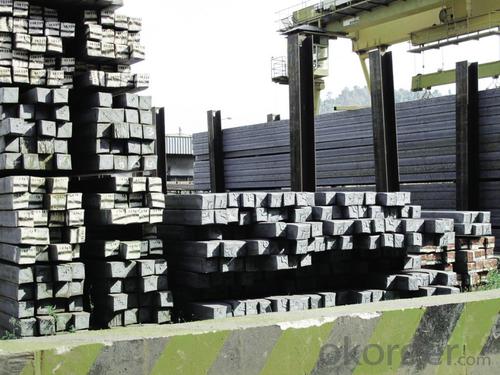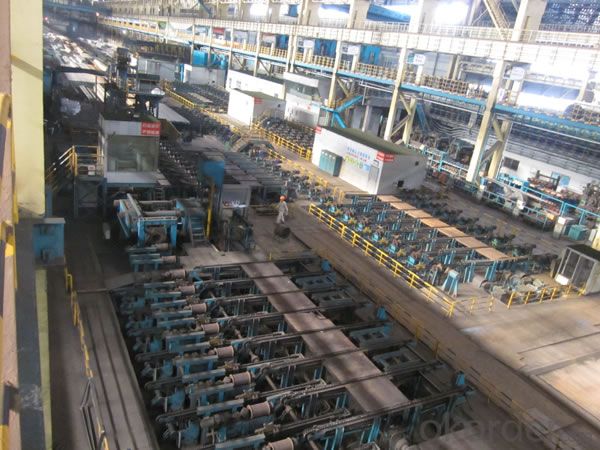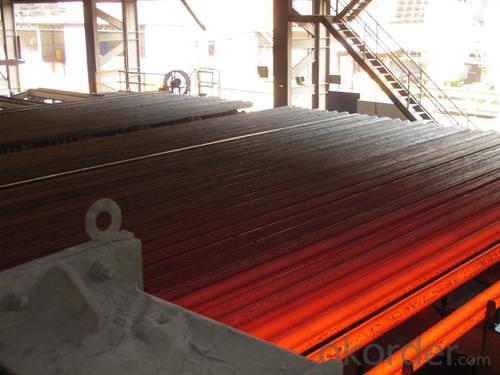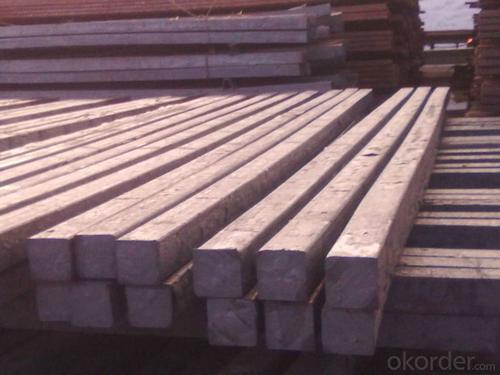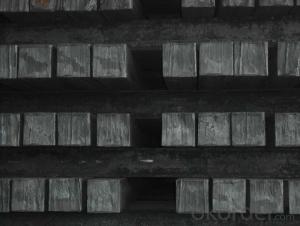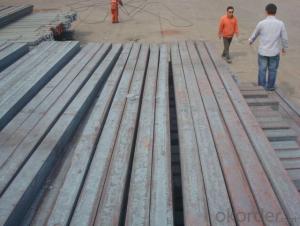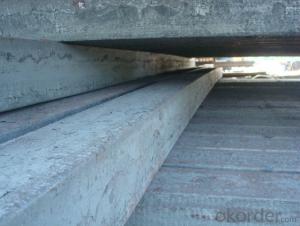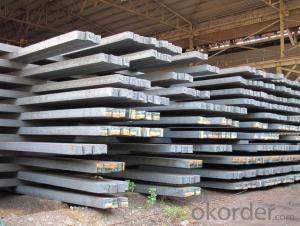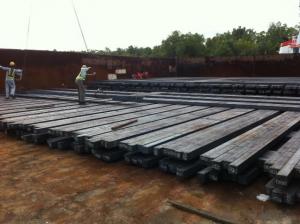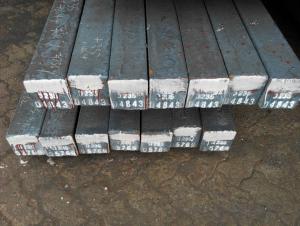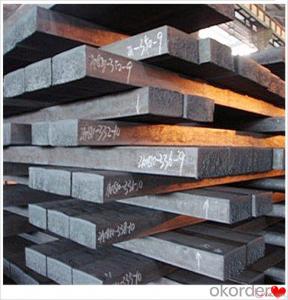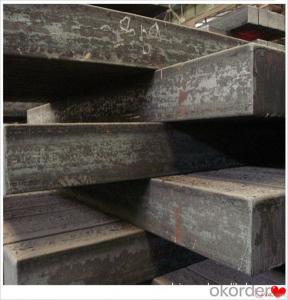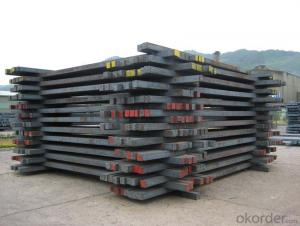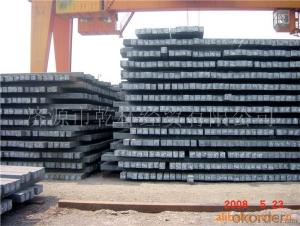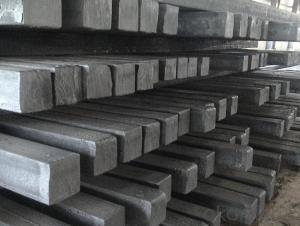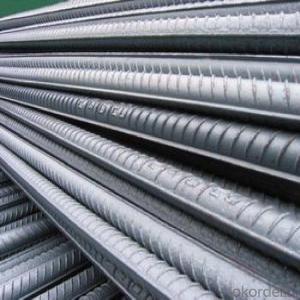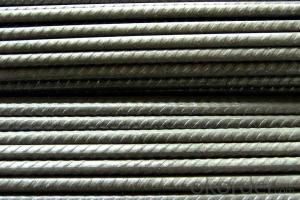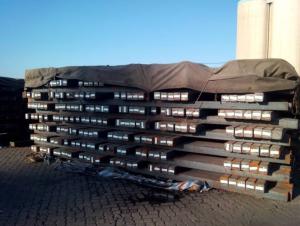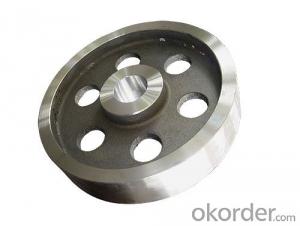Prime Q275 90mm Square Alloy Steel Billet
- Loading Port:
- Shanghai
- Payment Terms:
- TT OR LC
- Min Order Qty:
- 100 m.t.
- Supply Capability:
- 10000 m.t./month
OKorder Service Pledge
OKorder Financial Service
You Might Also Like
Structure of Prime Q275 90mm Square Alloy Steel Billet
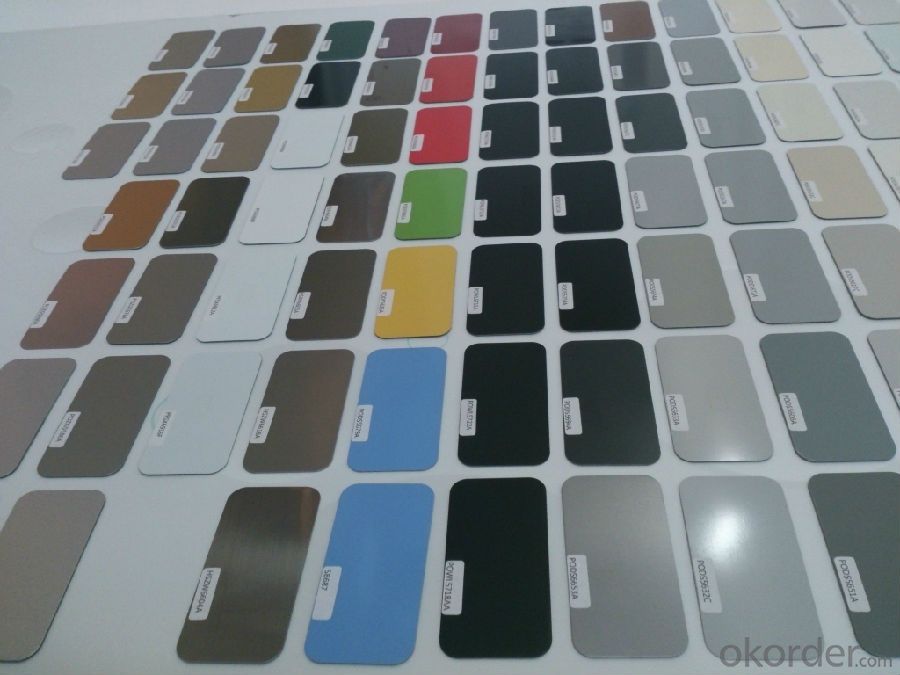
Description of Prime Q275 90mm Square Alloy Steel Billet
1. Prepainted steel coil is coated with organic layer, which provides higher anti-corrosion property and a longer lifespan than that of galvanized or galvalume steel sheets.
2. The base metals for prepainted steel coil consist of cold rolled, HDGI Steel, electro-galvanized and hot-dip alu-zinc coated steel. The finish coats of prepainted steel coil can be classified into groups as follows: polyester, silicon modified polyesters, polyvinylidene fluoride, high-durability polyester, etc.
3. The production process has evolved from one-coating-and-one-baking to double-coating-and-double-baking, and even three-coating-and-three-baking.
4. The color of the prepainted steel coil has a very wide selection, like orange, cream-colored, dark sky blue, sea blue, bright red, brick red, ivory white, porcelain blue, etc.
5. The prepainted steel coils can also be classified into groups by their surface textures, namely regular prepainted sheets, embossed sheets and printed sheets.
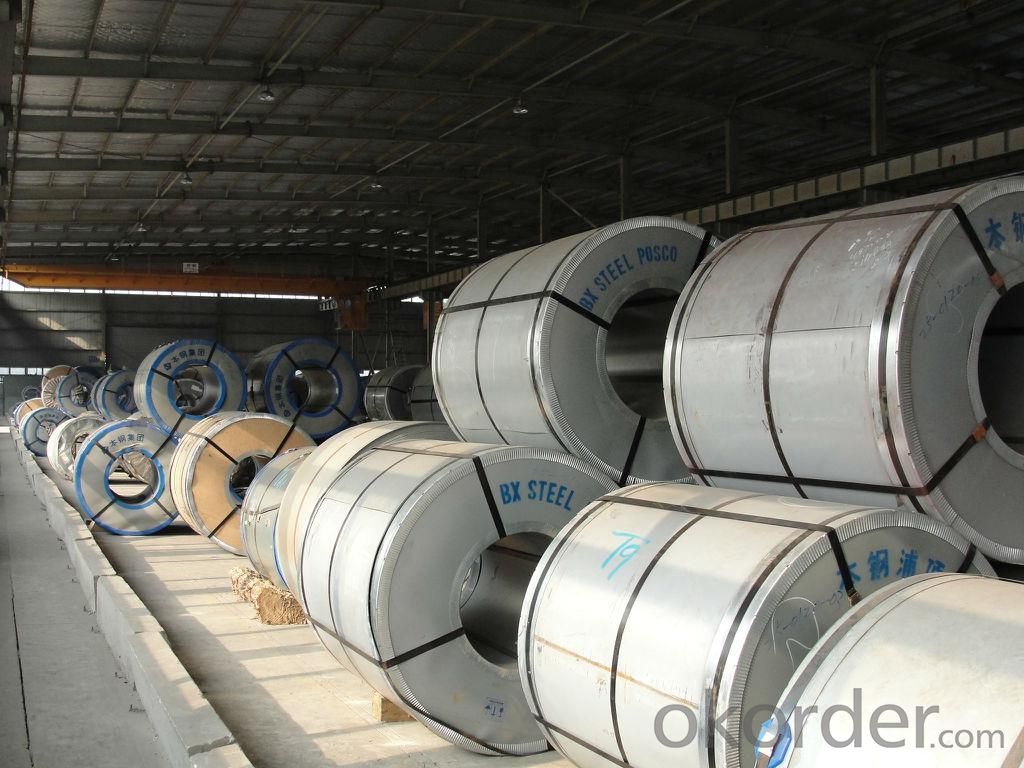
Main Feature of Prime Q275 90mm Square Alloy Steel Billet
Uncoated CR steel sheet
With the features of in line with the international highest standards in demension and shape, excellent surface finish and properties, the products are mainly used in home appliance and automobile industries.
Galvanized steel sheet(include HDG and EG)
With the features of good corrosion resistance, the products are mainly used in automobile, home appliance, electronics, building and machinery manufacture industries, etc.
Precoated steel sheet
With the features of enviromental protection and good processablility, long lasting surface durability, rich in colors, the products are maily used in building, home appliance and furniture industries, etc.
Applications of Prime Q275 90mm Square Alloy Steel Billet
A. Corrugated design makes it excellent waterproof performance
B. Materials as prepainted steel sheets, galvanized steel sheets, galvalume (Al-Zn coated sheets) are available to make corrugated sheet.
C.Those material are durable, anti-corrosion in bad weather for 20-30 years based on it's Zinc(Galvanized) coating or AZ (Galvalume) coating.
D. Different shape of the sheet make it suitable for any style of buildings.
E.Easy to install, no need special tools to fix the sheet.
F.Light weight due to high strength to weight ratio of steel. Light weight means easier handling lower shipping costs, easier installation
G. Different color is availbe base on the RAL Standard make your building more beautiful.
H. We will provide the best solutions if you don't have a exact idea of the specification you want for the steel sheet based on your weather conditions, engineering structure, construction budget and so on.
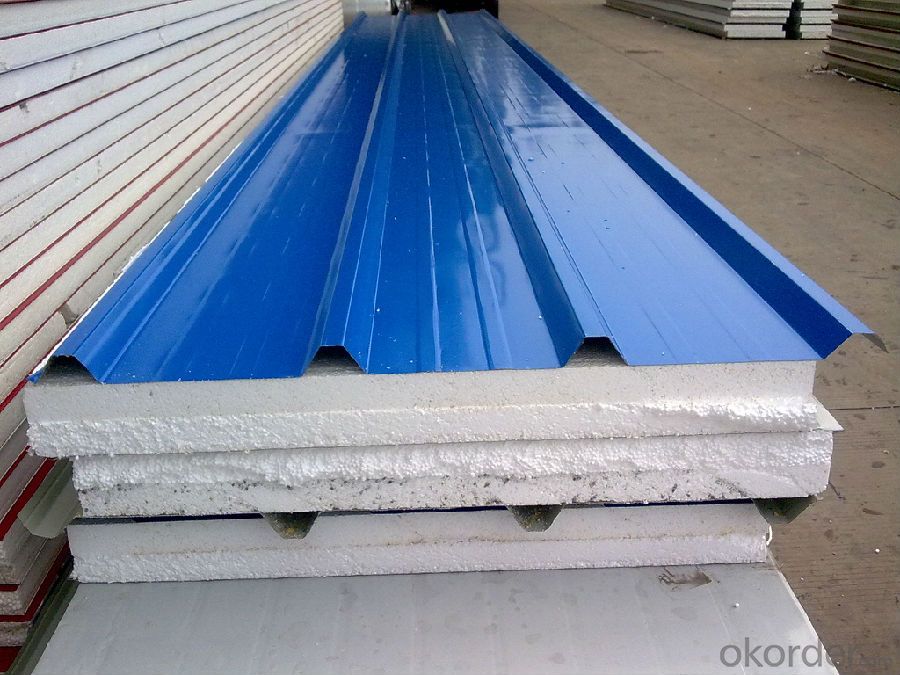
Specifications of Prime Q275 90mm Square Alloy Steel Billet
Product | Billet |
Material Grade | SGCC / SGCH / DX51D+AZ, etc |
Thickness | 0.6-3.0mm |
Width | 500-1500mm |
Tolerance | Thickness: +/-0.02mm , Width:+/-2mm |
Zinc-coating | Z30-150g/m2 |
Technique | Raw material: Hot rolled steel coil --> Cold rolled_>hot dipped galvalume |
Surface | Dried, Chromated, Unoiled |
Spangle | Regular spangle , small spangle, zero spangle |
ID | 508MM 610MM |
Coil weight | 1-25MT |
Export package | Cardboard inner sleeves, Waterproof paper, galvanized steel covered and steel strip packed |
FAQ of Prime Q275 90mm Square Alloy Steel Billet
We have organized several common questions for our clients,may help you sincerely:
1. How Can I Visit There?
Our company is located in Tianjin City, China, near Beijing. You can fly to Tianjin Airport Directly. All our clients, from home or aboard, are warmly welcome to visit us!
2. How Can I Get Some Sample?
We are honored to offer you sample.
3. Why choose CNBM?
Our delivery time about 15-20days for standard sizes, if you have other requirements like hardness, quanity and width ,it is about 20-40days. But don't worry we also try our best for the delivery time ,because time longer and our cost is higher.
- Q: What are the main factors that determine the demand for steel billets in different industries?
- There are several factors that influence the demand for steel billets in different industries. These factors include economic conditions, construction and infrastructure projects, manufacturing activities, technological advancements, international trade and globalization, environmental regulations, and price and availability. The overall state of the economy plays a crucial role in determining the demand for steel billets. When the economy is growing and there is increased construction activity, industries such as construction, infrastructure, and manufacturing typically have a higher demand for steel billets. The demand for steel billets is closely tied to construction and infrastructure projects. These projects require large amounts of steel for structural support, reinforcement, and fabrication. The level of investment in these projects directly affects the demand for steel billets. Steel billets are used as raw material in various manufacturing processes. The demand for steel billets in industries such as automotive, aerospace, machinery, and equipment manufacturing is directly influenced by the level of manufacturing activities and overall production output. Technological advancements and innovation can also impact the demand for steel billets. As new technologies emerge and industries evolve, the demand for steel billets may change. For example, the rise of electric vehicles has increased the demand for steel billets in the automotive industry due to the need for lightweight yet strong materials. International trade dynamics and globalization can affect the demand for steel billets. The expansion of global supply chains and the growth of emerging economies can lead to increased demand for steel billets in different regions. Changes in trade policies or tariffs can also influence the demand for steel billets in certain industries. Increasing environmental regulations and sustainability initiatives can impact the demand for steel billets. Industries that need to reduce their carbon footprint may opt for alternative materials or adopt more efficient manufacturing processes, which could affect the demand for steel billets. The price and availability of steel billets can significantly impact demand. Fluctuations in steel prices, supply chain disruptions, and shortages of raw materials can influence the demand for steel billets. Additionally, the availability of substitutes or alternative materials can also affect the demand for steel billets. In conclusion, understanding the various factors that influence the demand for steel billets in different industries is essential for predicting and analyzing demand.
- Q: What is the average lifespan of a steel billet in the automotive industry?
- The average lifespan of a steel billet in the automotive industry can vary depending on several factors such as the specific application, type of steel used, and maintenance practices. However, on average, steel billets in the automotive industry can last for several years to decades, especially when properly cared for and maintained.
- Q: How are steel billets used in the manufacturing of defense equipment?
- Due to their strength, durability, and versatility, steel billets are crucial in the production of defense equipment. Armored vehicles, tanks, and artillery require materials that can withstand extreme conditions and offer optimal protection. Steel billets, which have a square or rectangular cross-section, are semi-finished steel products used as the raw material for various defense equipment components. These billets are melted and cast into specific shapes that meet the exact requirements of each equipment part. After casting, steel billets undergo forging, heat treatment, and machining processes to create different defense equipment components such as armor plates, gun barrels, missile casings, and vehicle frames. The high strength and impact resistance of steel billets make them ideal for these applications, ensuring the equipment can endure ballistic impacts, blast forces, and other hostile conditions encountered in combat situations. Additionally, steel billets can be easily welded, allowing for the assembly of complex structures and the integration of different components. This flexibility enables the production of customized defense equipment tailored to fulfill specific military needs. Furthermore, steel billets possess corrosion resistance, which is vital for defense equipment exposed to harsh environmental conditions like saltwater or extreme temperatures. This resistance ensures the longevity and reliability of the equipment, reducing maintenance requirements and costs. In summary, steel billets play a crucial role in the manufacturing of defense equipment as they provide the necessary strength, durability, and flexibility for effective performance in combat situations. Their usage guarantees that defense forces have access to reliable and robust equipment, enhancing their operational capabilities and safeguarding the lives of military personnel.
- Q: Can steel billets be used in the production of oil and gas equipment?
- Steel billets have the capability to be utilized in the manufacturing process of oil and gas equipment. These semi-finished metal products, known as steel billets, are frequently employed as raw materials for the production of various industrial goods, including oil and gas equipment. They can undergo further treatment through hot rolling or forging to create distinct components like pipes, valves, flanges, and fittings, all of which are vital for the oil and gas industry. Given its robustness and resilience, steel is an ideal material for enduring the demanding conditions and high pressures encountered in oil and gas operations. Moreover, steel billets can be tailored to meet specific requirements, such as corrosion resistance, heat resistance, and mechanical properties, ensuring that the final product is suitable for its intended application within the oil and gas sector.
- Q: What is the price range of steel billets?
- The price of steel billets can fluctuate due to several factors, including steel quality, market demand, and global steel prices. Typically, the price range for steel billets spans from $300 to $600 per metric ton. Nevertheless, it is crucial to recognize that these prices are susceptible to changes and may vary over time. For the most precise and current pricing details, it is advisable to seek guidance from steel suppliers or industry professionals.
- Q: What is the role of steel billets in the manufacturing of pressure vessels?
- Steel billets play a crucial role in the manufacturing of pressure vessels. Pressure vessels are designed to hold and contain fluids or gases at a higher pressure than the atmospheric pressure. These vessels are used in various industries such as oil and gas, chemical, pharmaceutical, and many more. The role of steel billets in the manufacturing process is to serve as the raw material for constructing the pressure vessel. Steel billets are semi-finished products that are obtained through the continuous casting or hot rolling of steel ingots. They have a rectangular or square cross-section and are typically made from carbon steel or alloy steel. Steel billets possess several key properties that make them ideal for pressure vessel manufacturing. Firstly, they have excellent strength and toughness, which is crucial for withstanding the high internal pressure exerted by the fluids or gases inside the vessel. This ensures the structural integrity and safety of the vessel. Secondly, steel billets have good weldability, which is essential for fabricating the pressure vessel. Welding is a common joining technique used in pressure vessel manufacturing, and the weld joints must have comparable strength to the base material. Steel billets allow for strong and reliable welds to be made during the fabrication process. Moreover, steel billets can be easily formed and shaped into the desired size and dimensions required for the pressure vessel. They can be forged, rolled, or extruded to create the necessary components of the vessel, such as the cylindrical body, heads, nozzles, and flanges. This versatility in shaping allows for customization based on the specific requirements of the pressure vessel. Furthermore, steel billets are known for their corrosion resistance, which is important for pressure vessels that come into contact with corrosive fluids or gases. The selection of the appropriate steel grade for the billets ensures that the pressure vessel can withstand the corrosive environment and maintain its integrity over time. In conclusion, steel billets are essential in the manufacturing of pressure vessels as they provide the raw material with the necessary properties to withstand high-pressure conditions. Their strength, weldability, formability, and corrosion resistance make them an ideal choice for constructing reliable and durable pressure vessels used in various industries.
- Q: What are the main factors that determine the profitability of steel billets manufacturers?
- The main factors that determine the profitability of steel billets manufacturers include the cost of raw materials, such as iron ore and scrap metal, as well as energy costs for production processes. Additionally, market demand and pricing dynamics play a crucial role, as fluctuations in steel prices can significantly impact profitability. Efficient production processes, economies of scale, and effective supply chain management are also key factors that can affect the profitability of steel billets manufacturers.
- Q: What are the different methods of steel billet surface treatment?
- There are several methods of steel billet surface treatment that are commonly used in the industry. These methods aim to enhance the surface properties of the steel billets, such as improving corrosion resistance, increasing hardness, and improving aesthetics. Some of the most common methods of steel billet surface treatment are: 1. Pickling and Passivation: This process involves the removal of impurities and oxide layers from the steel surface using acid solutions. After pickling, the steel is passivated to create a protective layer that prevents future corrosion. 2. Shot Blasting: Shot blasting is a mechanical surface treatment method that involves the use of high-speed steel shots or grits to bombard the surface of the billets. This process removes scale, rust, and other contaminants, resulting in a clean and uniform surface. 3. Hot-Dip Galvanizing: In this process, the steel billets are immersed in a bath of molten zinc, which forms a protective coating on the surface. This method provides excellent corrosion protection, making it suitable for outdoor applications. 4. Electroplating: Electroplating involves the deposition of a thin layer of metal, such as chrome or nickel, onto the steel surface using an electric current. This method improves the appearance of the steel, enhances corrosion resistance, and can also provide better wear resistance. 5. Powder Coating: Powder coating is a popular method of surface treatment, especially for aesthetic purposes. It involves applying a dry powder onto the steel surface and then curing it through heat, resulting in a durable and attractive finish. 6. Painting: Painting is another common method used for surface treatment. The steel surface is first cleaned and primed before applying a suitable paint system. This method not only enhances the appearance but also provides protection against corrosion and environmental factors. 7. Nitriding: Nitriding is a heat treatment process that involves the diffusion of nitrogen into the steel surface. This method improves the hardness, wear resistance, and fatigue strength of the billets. These are just a few of the various methods of steel billet surface treatment available. The choice of method depends on the specific requirements of the application, desired properties, and budget considerations.
- Q: What is the role of steel billets in the manufacturing of storage tanks?
- Steel billets play a crucial role in the manufacturing of storage tanks. These billets serve as the primary raw material for the construction of the tank's structural framework. They are essentially semi-finished steel products that are cast into a specific shape and size, typically in a rectangular or square form. The primary reason for using steel billets in the manufacturing of storage tanks is their exceptional strength and durability. Steel is renowned for its high tensile strength, which allows the tank to withstand the immense pressure and weight of the stored contents. Additionally, steel is resistant to corrosion, making it an ideal material for storage tanks that may hold various liquids or gases. Steel billets are also preferred for their malleability and versatility. They can be easily molded and welded into the desired shape, allowing for the customization of storage tanks to meet specific requirements. The flexibility of steel billets enables the construction of tanks of various sizes and capacities, accommodating different storage needs in industries such as oil and gas, chemical processing, water treatment, and many others. Furthermore, steel billets offer cost-effectiveness in the manufacturing process. The abundance of steel as a raw material and its recyclability contribute to lower production costs, making steel tanks a more economical choice compared to tanks made from other materials. Moreover, the longevity of steel tanks reduces maintenance and replacement costs over time, ensuring a higher return on investment for industries relying on storage tanks. In conclusion, steel billets play a vital role in the manufacturing of storage tanks due to their strength, durability, corrosion resistance, malleability, and cost-effectiveness. These billets form the core framework of the tanks, providing the necessary structural integrity to safely contain and store various liquids or gases. By utilizing steel billets, industries can rely on robust and reliable storage solutions that meet their specific storage requirements.
- Q: What are the main challenges in the storage of steel billets?
- The main challenges in the storage of steel billets include the need for proper space allocation, adequate handling equipment, protection against corrosion and rust, and maintaining optimal temperature and humidity levels. Additionally, ensuring proper inventory management and efficient transportation of the billets can also be challenging.
Send your message to us
Prime Q275 90mm Square Alloy Steel Billet
- Loading Port:
- Shanghai
- Payment Terms:
- TT OR LC
- Min Order Qty:
- 100 m.t.
- Supply Capability:
- 10000 m.t./month
OKorder Service Pledge
OKorder Financial Service
Similar products
Hot products
Hot Searches
Related keywords
